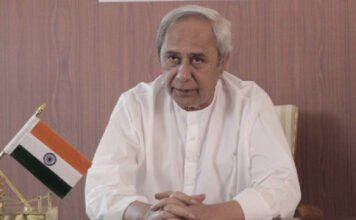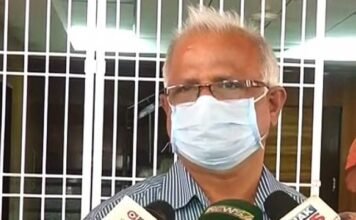New Delhi: October 15 (IANS) Blaming current marketing practice for the current high oil prices, Prime Minister Narendra Modi on Monday made a strong case for partnership between producers and consumers at a meeting here with global company heads, following which Saudi Arabia said it expects its oil output to rise next month to counter the impact of US sanctions on Iran.
With domestic petrol and diesel prices daily breaching record levels, Modi on Monday met the chief executives of major global and Indian oil and gas companies.
Besides Finance Minister Arun Jaitley, Petroleum Minister Dharmendra Pradhan and NITI Aayog Vice-Chairman Rajiv Kumar, the meeting included ministers from Saudi Arabia and the UAE and CEOs and experts from organisations like Saudi ARAMCO, BP, Rosneft, IHS Markit, World Bank and International Energy Agency.
“Modi made a strong case for a partnership between the producers and consumers, in the oil market, as it exists in other markets. This will help stabilise the global economy which is on path of recovery,” the Prime Minister’s Office said in a statement.
Highlighting the significant positioning of India in the oil and gas market, Modi said the oil market was producer driven and both the quantity and prices were determined by the oil producing countries.
“Though there is enough production, the unique features of marketing in the oil sector have pushed up the oil prices,” he said.
Following the meeting, Saudi Petroleum Minister Khalid Al Falih told reporters here on the sidelines of a global conference organised by CERAWeek that he expects Riyadh’s oil production to rise next month from the current 10.7 million barrels per day (bpd) and that it has the required capacity in place to do so.
“Saudi Arabia has the capacity to produce 12 million bpd and is currently producing 10.7 million bpd and production will rise further next month,” Al Falih said.
According to the PMO, Modi said the consuming countries face many other economic challenges due to rising crude oil prices, including serious resource crunch and stressed that the cooperation of the oil producing countries would be very critical to bridge this gap.
“He appealed to oil producing countries to channel their investible surplus to pursue commercial exploitation in oil sector in the developing countries. Secondly, he spoke of higher acreage under exploration and sought cooperation of the developed countries both in terms of technology and extension of coverage.
“Lastly and importantly, he requested for review of payment terms so as to provide temporary relief to the local currency,” the statement said.
The meeting took place in the backdrop volatile crude oil prices and with the US sanctions on Iran due to come into effect from November 4.

























